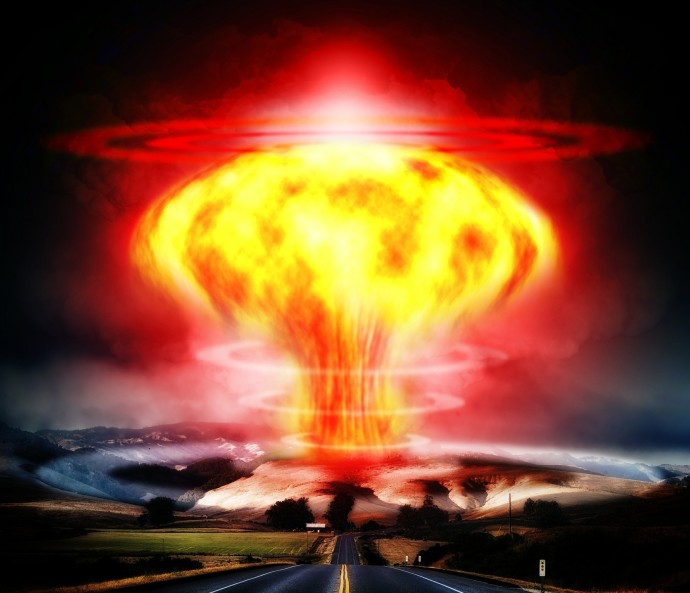With its invasion of Ukraine, Russia has constantly brought the threat of nuclear warfare to the forefront. But how would a modern nuclear war affect the world today? A new study provides stark information on the global impact of nuclear war.
The peer-reviewed study’s lead author, LSU Department of Oceanography & Coastal Sciences Assistant Professor Cheryl Harrison, and co-authors ran simulated climate impacts of US-Russia and India-Pakistan nuclear wars in an Earth System Model. Nine nations currently control more than 13,000 nuclear weapons in the world, according to the Stockholm International Peace Research Institute.
The researchers simulated what would happen to the Earth’s systems if the US and Russia used 4,400 100-kiloton nuclear weapons to bomb cities and industrial areas, which resulted in fires ejecting 150 teragrams (more than 330 billion pounds) of smoke and sunlight-absorbing black carbon into the upper atmosphere.
They also simulated what would happen if India and Pakistan detonated about 500 100-kiloton nuclear weapons resulting in 5 to 47 teragrams (11-103 b. pounds) of smoke and soot into the upper atmosphere.
“Nuclear warfare results in dire consequences for everyone. World leaders have used our studies previously as an impetus to end the nuclear arms race in the 1980s, and five years ago to pass a treaty in the United Nations to ban nuclear weapons,” said co-author Alan Robock, Distinguished Professor in the Department of Environmental Sciences at Rutgers University. "We hope that this new study will encourage more nations to ratify the ban treaty."

Firestorms
The study found that firestorms from nuclear war would transport light-blocking aerosols to the stratosphere, resulting in global cooling. The ocean responds over two timescales: a rapid cooling event and a long recovery, indicating a hysteresis response (input/output lag in a changing system) of the ocean to global cooling.
The firestorms would cause crop failure around the world. In the first month following nuclear detonation, average global temperatures would plunge by approximately 7°C, a larger temperature change than in the last Ice Age.
Volcanic eruptions
Volcanic eruptions also produce clouds of particles in the upper atmosphere. Throughout history, these eruptions have had similar negative impacts on the planet and civilization.
“We can avoid nuclear war, but volcanic eruptions are definitely going to happen again. There’s nothing we can do about it, so it’s important when we’re talking about resilience and how to design our society: that we consider what we need to do to prepare for unavoidable climate shocks,” Harrison said.
“We can and must, however, do everything we can to avoid nuclear war. The effects are too likely to be globally catastrophic,” she said.
“We can and must however, do everything we can to avoid nuclear war. The effects are too likely to be globally catastrophic”
Cheryl Harrison
The sudden drop in light and ocean temperatures, especially from the Arctic to the North Atlantic and North Pacific oceans, would kill the marine algae, which is the foundation of the marine food web, essentially creating a famine in the ocean. This would halt most fishing and aquaculture.
